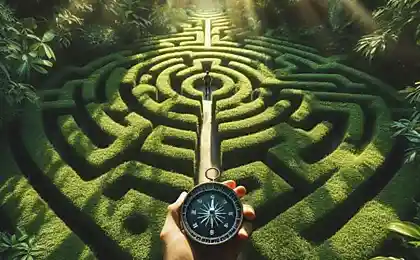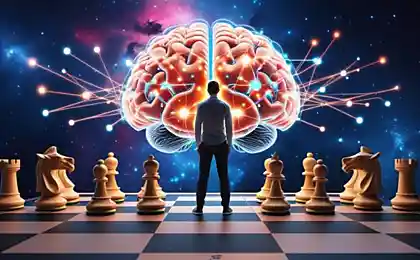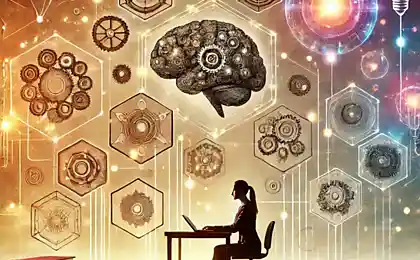209
How to develop the ability to think independently

Introduction. Our thinking is a complex system that is influenced by experience, social environment, cultural norms and a huge number of external factors. However, the ability to think independently is not an innate gift, but a skill that can be perfected. In a world where so many people mistake other people’s ideas for undeniable truth, it’s especially important to be able to question what seems obvious and come up with original solutions. After all, each of us has one life, and we should live it so that it corresponds to our true desires and values. This is why we need independence of thinking: to make decisions in our favor, not limited to imposed patterns.
What is Independent Thinking?
Independent thinking is the ability to build judgments that don’t just repeat what others have said. A person with an independent mind can analyze different points of view, compare facts and form his own position. This is not to deny any authoritative opinions. Rather, independent thinking is a conscious choice: rely on expertise and reliable information, but do not blindly believe every source and do not suppress your own inner voice.
According to research conducted in the field of cognitive psychology, adults who regularly exercise critical thinking demonstrate higher levels of psychological adaptability and self-discipline. At the same time, they learn new skills more easily and react faster to changes in the world around them. Such flexibility can be developed by making a conscious choice in favor of continuous self-development and inner freedom.

Main part
1. Get rid of the fear of mistakes
Fear of being wrong is one of the main reasons that prevents us from thinking for ourselves. We are afraid of getting into an awkward situation or seeing disapproval from others. But mistakes and failures are a perfectly natural part of any learning process, whether in science, business or personal life. In many companies with an innovative culture, a critical view of established ideas is encouraged, because it is doubt and the search for alternatives that allow for fresh solutions.
- Learn to see mistakes as a source of new knowledge.
- Analyze the reasons for miscalculations, so as not to repeat them in the future.
- Create a personal “experiment zone” where hypotheses can be tested without fear of judgment.
2. Practice deliberate criticism of information
The modern world is full of news, facts, rumors and multiple versions of the same event. As a result, we can easily get lost in this information field if we do not know how to critically select data. This is an important skill for developing independent thinking – the ability to question the content and source of information, verify facts and correlate them with reality.
- Compare multiple sources, especially when it comes to complex or controversial topics.
- Study primary documents and research instead of trusting retelling.
- Be vigilant about your own prejudices.
3. Train the skill of asking questions
Healthy curiosity is a powerful engine for independent thinking. When we ask questions, we stimulate our brains to search for answers, juxtapose arguments, and form a bigger picture. The result is a habit of further exploring what seems obvious and finding new aspects of the familiar.
“Questions open the way to deep understanding because they force us to clarify why we think this way.”
Ask as many “why” and “how” as possible. This will not only allow you to broaden your horizons, but also teach you to delve deeper into details and see the relationships between different fields of knowledge.
4. Surround yourself with different points of view
To form your own view of things, it is useful to communicate with people who may have completely different views and experiences. The diversity of opinions in your social circle is a great way to “ventilate” established beliefs and notice contradictions that you have previously ignored. Try to:
- Find interlocutors from different fields of activity and cultural backgrounds.
- Attend discussion clubs, forums, seminars.
- Do not avoid constructive conflicts of opinion, but learn to direct them in a productive way.
5. Develop Emotional Intelligence
Independence of thinking does not exclude emotional perception of the world. Moreover, the ability to understand your feelings and recognize the emotions of others is an important step to look at the situation deeper and wider. Developed emotional intelligence helps to notice nuances, not limited to strict logic, and to draw more accurate conclusions.

Conclusion
The ability to think independently is one of the most valuable skills in modern society. It helps you make decisions based on your own goals and values, rather than just following someone else’s directions or fashion trends. Moreover, this ability is directly related to the feeling of inner freedom and responsibility for one’s own life. By developing an independent mindset, you take on the right to err, learn, and become stronger on the path to your own goals.
Remember that we really have one life, and it is important to live it in harmony with ourselves. When you learn to think for yourself, you gain a tool that helps you find the true vector of development, live consciously and form the reality that is really close to you. Criticism of external signals, the willingness to ask questions and the ability to make informed decisions – these are what make us free and truly responsible for our future.
Step into the unknown: 5 expeditions that ended in disaster
8 Injustices You Can Overcome If You Want























